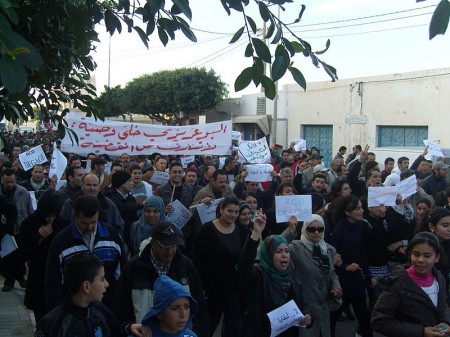One of my students expressed an interest today in learning more about the French and Russian revolutions. Coincidentally, there’s a piece by Josef Joffe that makes the connection between the recent Tunisian revolution and Marx’s ideas about the recipe for a successful revolution.
A country needs to have a certain level of education and wealth to overthrow a tyrant:
If you are poor, you have neither the time nor the energy to engage in politics. If you are not educated, you lack the cultural skills to articulate your demands—to agitate and organize.
— Joffe (2010) in Why Tunisia Isn’t a Tipping Point for the Arab World

Samuel Huntington, took this idea forward in his book, The Third Wave. He looked at democratic revolutions between 1974 and 1989 from around the world and found that 75% of countries had a revolution when they developed to the point where the per-capita (per person) income was between $1,000 and $3,000. Tunisia’s per-capita income is $1,000 (when adjusted for inflation).
P.S.: The Boston Globe’s Big Picture has an excellent picture series from the last few weeks.

